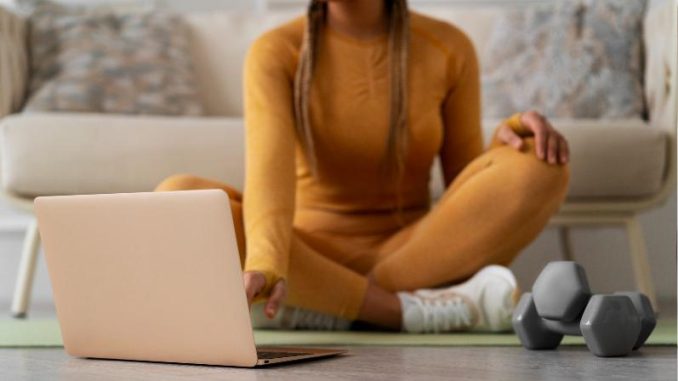
Image by Freepik
Life doesn’t always come with a manual, but feeling better—mentally, physically, and emotionally—doesn’t require massive overhauls. Small, intentional shifts in your daily routine can create real impact. Whether you’re looking to increase your energy, steady your mindset, or feel more in control of your habits, there are practical ways to support your well-being without sacrificing your time or values. This article offers six grounded strategies you can apply starting today.
Connect and Community
Feeling good isn’t just about how you care for yourself—it’s about how you connect with others. Humans are wired for interaction, and studies consistently show that relationships play a significant role in mental well-being. Whether it’s a quick call to a family member, a walk with a neighbour, or joining a local class or club, moments of connection help restore a sense of grounding. If your circle feels limited, consider small steps to deepen your social connections. It’s not about quantity but about the quality of your connections and your willingness to open up when you need support.
Rethink Your Work
A sense of well-being often hinges on how you spend your working hours. If you’re stuck in a role that drains more than it gives, a career shift can open up a renewed sense of direction and self-worth. Many adults are now choosing to research online business degree programs as a way to pivot into new fields—without pausing their current jobs or stepping away from family obligations. Business studies can build foundational skills in management, accounting, communications, and decision-making, giving you flexible tools for whatever’s next. When your work starts to align with your goals, your daily energy and long-term outlook often follow.
Move Your Body
You don’t have to run a marathon to benefit from movement. Even a few minutes of intentional activity in the morning can change the tone of your day. A consistent stretching routine can increase mobility, reduce tension, and help with mental focus. For example, energise mornings with stretches that target your back, hips, and shoulders—areas that typically hold tension. Movement also reinforces self-trust: the body feels capable, and the mind follows suit. Keep it simple. A few moves after getting out of bed or while waiting for the kettle to boil can shift both posture and perspective.
Mindful Moments
Mindfulness doesn’t need incense, chanting, or a perfectly quiet room. Sometimes, it just needs your attention. Mindful practices anchor you in the present, which can disrupt overthinking or the compulsion to multitask. One powerful approach gaining popularity is silent walking—a practice where you walk without headphones, podcasts, or phone calls. Silent walking calms the mind and promotes clarity while giving your nervous system a breather from the daily noise. You can try it on your lunch break, while walking the dog, or on your commute. Just ten minutes a day can lead to real clarity and calm.
Nourish and Hydrate
Most people think about food when they hear “well-being,” but water deserves just as much attention. Drinking more water consistently supports digestion, energy levels, and mood regulation. It’s not just about avoiding dehydration—it’s about building a sustainable baseline for your body to function at its best. Hydration boosts long-term health, and adding a bit of fruit or herbal infusions can help if you find plain water boring. At the same time, look at your plate. Try to add more colour: greens, oranges, purples. These foods are loaded with nutrients and are easier to work into your meals than you think.
Self-Care Routines
Self-care doesn’t have to mean bubble baths or spa days—though those have their place. It’s about recognising when you’re nearing burnout and taking small, consistent actions to care for yourself before that happens. Creating sustainable self-care habits often starts with rituals: lighting a candle before reading, journaling with your morning coffee, or ending your workday with a five-minute walk. These aren’t indulgent; they’re stabilising. When repeated, these routines become part of how you reset and protect your energy in the long term.
Form New Habits
We all know that real change happens over time, not overnight. But the good news is that habits form faster when they’re anchored to existing routines. For instance, placing your vitamins next to your coffee mug or doing your stretches after brushing your teeth makes the habit harder to forget. And science backs this up—repetition forms new habits when paired with simple cues and low resistance. Start small, stay consistent, and remember that perfection isn’t the point—progress is. A missed day doesn’t break a habit, but giving up altogether does. Give yourself grace and keep moving forward.
Well-being isn’t a final destination—it’s an ongoing relationship with your own body, mind, and surroundings. You don’t need drastic changes to feel better. You need small, honest actions that support how you want to feel. Prioritising connection, movement, mindfulness, nutrition, self-care, and habit-building can help you feel more like yourself, day by day. And when those things start to feel natural—like brushing your teeth or checking the post—you’ll realise that well-being isn’t a project. It’s a rhythm. And it’s yours to shape.
Discover delicious and easy gluten, corn, and dairy-free recipes at Aunty Lil’s Place and transform your meals with healthy, allergy-friendly options!